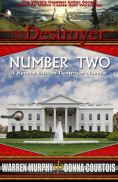INSPIRATION JUST CALLED AND SAID TO TELL YOU HE’S NOT COMING TODAY SO START WITHOUT HIM.
So what’s your problem? You’ve got a great story idea, you’ve got a plot, an outline, you’ve got your characters pretty well figured out and you’re still sitting there like a bump on a log.
Inspiration? Forget it. It’s what you pretend you need because you’re too lazy to perspire.
Oh, it’s not that. You say you can’t write because you can’t find the time to write?
Well, here’s what I say. If you need the exact moment and the exact place and the exact astrological confluence of all the planets and the stars before you can start to write, you’re never going to write. So quit now and stop wasting our time.
But….
But….
But….
Yeah, I know…but, but, but…. Except I also know this. If you really want to write, you will find time and a place. It’s not massive quantity of time that’s necessary either. It’s quality of time.
Let’s get practical.
Here’s one way to start. Get up earlier. A banker who became a best-selling author changed his life by getting up at 5:30, to start writing at 6:15. By 9 a.m., his writing day’s work was done. He worked when he was most awake, most alert, most productive and the phone wasn’t ringing. You can always do banking, for God’s sakes.
Back when I had another full-time job, I used to work at night on the dining room table after the kids went to sleep.
Hemingway said get rid of visitors and the telephone. Today he would have added, get rid of e-mail and facebook too. And remove all the games from your computer. Without them, you can work. If you want to… really want to…there is always time to be found. Hell, you always have time to watch some Clydesdale-faced actress galloping around in Sex and the City, don’t you? Okay, tape the episode and watch it on Sunday when you get back from church. Use the time now to write.
Do the same thing every day. Carve out some time. We all have too much time nowadays; we just waste it sitting in front of the stupid tube watching even-stupider Donald Trump trying to look like a tough guy. And writing? Well, writing has always been the easiest thing in the world not to do. There’s always an excuse, always a reason not to.
So here’s what you’ve got to do:
Write every day. The more time you can spend writing, the more you will write and the quicker your book will get done. And you’ll get better. You have to be awfully stupid to write a lot and not get any better.
Some will tell you to write a page every day. To hell with that. In these early stages of your (well-outlined and well-plotted) book, I think three pages an hour or so is acceptable; less than that is probably dogging it. Remember, you have your story. You know what’s going to happen next. So if you know what’s going to happen, why don’t you just write it?
If you can, write in the same place all the time. Find that place — an office, a table in the basement, whatever — and start writing as soon as you sit there. Reduce your warmup time. Sit and start. My partner needed inspiration at the start of his career so he hung up on the wall over his desk a photocopy of his first royalty check. It always started his juices flowing.
Hemingway, to be able to start writing promptly, used to end one day’s work when he was only halfway through his last sentence. The next day, he just finished that leftover sentence and was off and running.
Some might disagree but I think you should set work quotas for yourself. The Belgian novelist Georges Simenon produced some 400 novels and novellas by writing 80 pages a day sometimes. This gave him time, he said, to pursue his hobby which resulted in his having, by his calculation, made love to 10,000 women.
(I once wrote a book in three days….I could have done it in two but I was busy making love to 17 different women, all at the same time. But I was young then and it was my first rodeo.)
Writing is serious business and you ought to treat it that way, especially if you hope someday to seriously make it your business.
The novelist and screenwriter, William Goldman, (Marathon Man, Butch Cassidy and the Sundance Kid, All the President’s Men), used to arise in his New York City apartment, do all his necessary ablutions, then get dressed to go to work. He would take the elevator down to the front of his building, walk fifty feet to his right to the next high-rise building, and then ride the elevator up to an apartment, identical to the one he had just left, which was his office. And there he would go to work. Besides being a wonderful writer, Goldman clearly understood the difference between profession and hobby and he worked best when his mind understood that he was “in the office and on the job.”
* * *
Back to nuts and bolts, some people might tell you that you’re allowed to write out of sequence, that you should write first the chapters you find most interesting or compelling. I disagree. I think if you do that, you leave yourself with a lot of fill-in chapters and bridge-the-gap chapters and you’ll consider them dull and not want to work on them and, even if you do work on them, I think your book probably loses its forward momentum. A chapter that might otherwise be on the dull side may soar if you write it right after finishing a heavy action heavy-breathing chapter; that impetus often carries over to the next less-exciting scenes and gives them extra life and sparkle. But if you save the dullards for last, all they’ll do is get duller and duller as will you too…until you hate the book…and yourself…and me. And, sorry, I can’t have any more people hating me; you’ll have to wait in line. There’s that lady in Minnesota.
Write your chapters in order. This also helps because if you’ve left any holes in the story or goofed up on your plot, you’re more likely to spot those mistakes if you do the book from beginning to end.
In an earlier section, we talked about Raymond Chandler’s mystery, “The Big Sleep.” In the book, a rich guy’s chauffeur is found dead in the car, having driven off the end of a dock. The movie director called author Chandler and asked, “Did the chauffeur kill himself or was he murdered?”
Chandler’s reply? “Damned if I know.” You’re all better than that, so write your book from beginning to end, so you all know who killed whom.
And that is sorta kinda it. No secrets, no magic. Pick a time, any time; pick a place, any place. Put your heinie in a chair and start writing. Stop when your writing day is over. No phones, no emails, no visitors, no endless games of solitaire. Coffee’s okay but bring a thermos so you don’t have to leave your desk for refills. Smoking’s okay too if you’ve still got that disgusting habit that left me with just half a lung, but you really ought to try electronic cigarettes: $7.99 at Walmart, $13.99 if you want the rechargeable.
While you’re there, I think you ought to join the 21st Century and if you don’t have one, buy a cheap word processor. This longhand stuff with pencil and paper went out with Samuel Pepys. You write faster at a keyboard, the stuff almost looks booklike and so it is very encouraging, and it’s a helluva lot easier to fix later on. Give it a try.
* * *
And write. Nobody can do it for you. Write and let the great practitioners be your role models.
I once read an interview in which Stephen King said that he wrote every day in the year except two — his birthday and the Fourth of July. (I think that’s accurate; one’s memory vanishes sometimes, especially if you’ve got a substance problem.)
But in a later interview, King revealed that he had been lying, almost as if to try to be socially correct. In truth, he said, he wrote every day. Every single day. Including his birthday and July 4. And even back before Stephen King became * *S*T*E*P*H*E*N K*I*N*G* * he wrote every day on a rickety folding card table at the end of the hall. Every day.
Suck it up, boys and girls, you can do it too.
Here’s another one. In Victorian England, there was a novelist named Anthony Trollope. The critics of the day thought he was better than Charles Dickens — (he wasn’t) — but he was very good and produced 45 novels or so in his career. And here’s how he did it.
Every morning before he went to work at the Post Office, he wrote at the dining room table. Usually the session lasted for an hour or so. If he wrote “the end” on a book manuscript, but still had time left in the hour, he took out another piece of paper and at the top of it wrote “Chapter One” and started on his next book. He wouldn’t waste a minute.
As I said, he wrote some 45 novels, became quite famous but never quit his day job at the post office.
And, dammit, HE INVENTED THE MAIL BOX!!!!! That’s right. That mailbox that used to be on every corner was invented by this Trollope guy and he still kept writing his books.
What’d you invent lately?
Nothing?
Right. I thought so. So you’ve got plenty of free time. Use it and start writing. I’ll tell you when to stop.
And comb your hair.










Another inspirational writing lesson that makes me want to get back to my latest wip… alas I already started dinner for the sick wife n kids, so I better tend to that stove.
Any chance we can get a bonus Lesson 6?
Oh, Murphys not getting off with only five lessons. Don’t you worry!